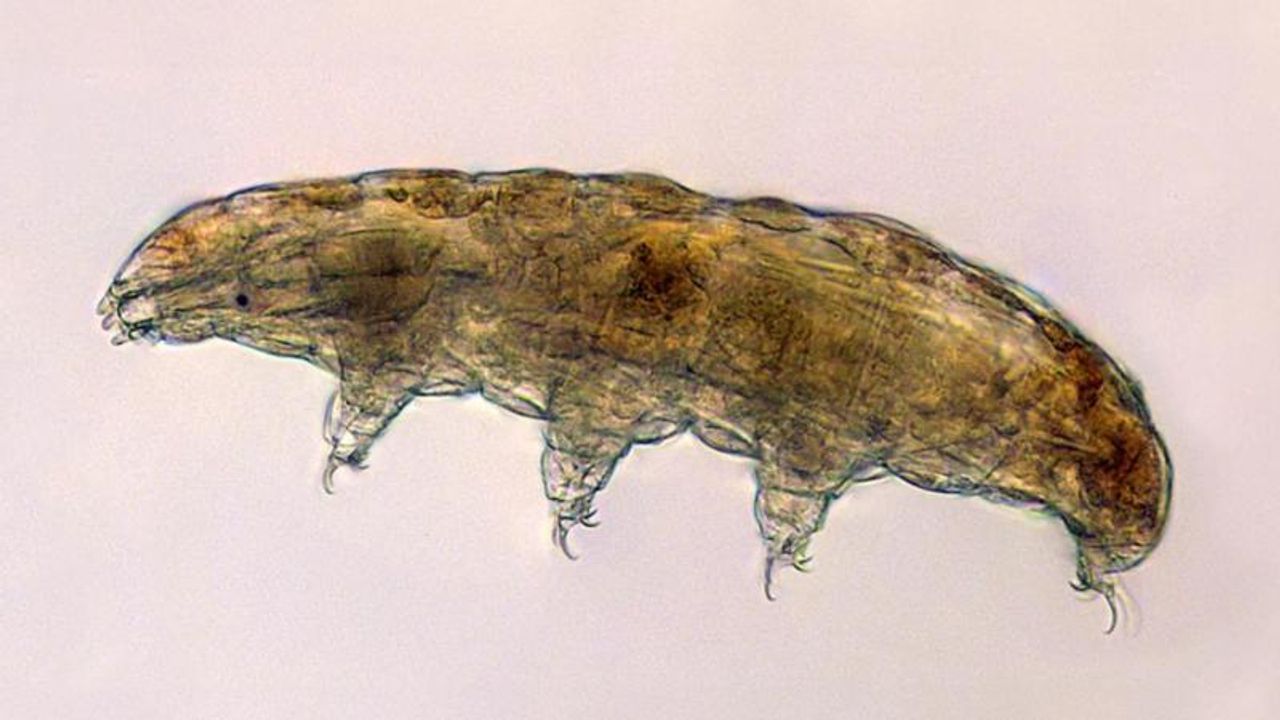Tardigrades, or water bears, are one of the world's most indestructible life forms and are capable of surviving in extreme conditions.
They can survive being completely dehydrated, frozen, heated to over 150 degrees Celsius, exposed to light several thousand times beyond what a human can withstand, and even in the vacuum of space.
Previous studies have shown that these creatures, which are less than half a millimeter long, can enter a vegetative state to protect their bodies when exposed to extreme conditions.
Scientists have tried to find out what mechanisms tardigrades use to enter and exit this temporary death state when faced with environmental stresses.
Now a team of researchers led by the University of Wyoming (UW) in the US has found that water bears use gel-forming proteins inside their cells to slow down their life processes.
When these proteins were added to human cells, they discovered that the molecules gel, just like in tardigrades, and slow down metabolism.
PUTS CELLS IN A STATE OF TEMPORARY DEATH
The researchers also found that when human cells producing these tardigrade proteins were put into a state of temporary death, the cells became more resistant to stresses.
This process, which gives human cells some of the skills of water bears, was also found to be reversible.
"When the stress is removed, the tardigrade gels dissolve and the human cells return to their normal metabolism," said study co-author Thomas Boothby from the UW.
Previous research had revealed that an important drug used to treat hemophilia patients could be stabilized by different types of tardigrade proteins.
The latest finding could lead to the development of new technologies focused on inducing a state of transient death in cells and even whole organisms to slow aging.
It also provides additional evidence that proteins from tardigrades could be used to deliver life-saving treatments to people where refrigeration is not possible, and to increase the storage potential of therapies such as stem cells.















